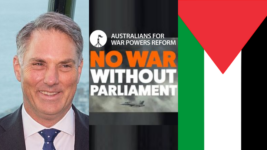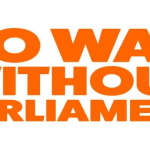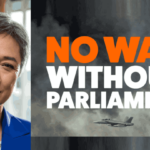Does Australia’s “Significant” Deployment to the Middle East Anticipate Joining a Regional War?

The death toll in what is euphemistically being called the Israel-Hamas war, which basically involves the all-out slaughter of Palestinians living in Gaza on the part of Israeli forces, was at more than 8,300 Palestinians, according to UNICEF on Monday, which is a figure that included 3,400 children.
Australia has lined up behind most other western nations in supporting Israel’s “right to defend” itself against – code for attempt to wipe out – anyone in Gaza, 47 percent of whom are children, due to some heinous attacks Hamas, Gaza’s governing body, made within Israeli territory on 7 October.
The right to defend itself appears to be the ability to exact disproportionate revenge when compared with the numbers killed by Hamas. And Tel Aviv is ordering locals to flee Gaza, even though its borders are closed, while the tiny region has been under a severe blockade for 16 years.
Indeed, it’s increasingly clear that Israel is perpetrating the crime of genocide with western support, and there are growing fears that the attempt to exterminate Gazans may spill over into a regional conflict, with Israel already having struck military infrastructure in Lebanon and Syria.
And its amongst these concerns that Australian defence minister Richard Marles announced on 25 October that we’re deploying two additional aircraft to join another at an undisclosed Middle East location, along with “a significant contingent” of troops, to help with evacuating Australians.
So, Australians for War Powers Reform (AWPR) has sent Marles a letter asking for more details about the deployment, as the secrecy surrounding it has led some in the community to be “concerned about the possibility of Australia becoming involved in the current conflict”.
Them’s fighting words
“We hope this is confined within Israel and Gaza,” the hawkish Marles told the ABC last week. “But we are all watching this, as the world is watching this, and we want to make sure that we are prepared if matters do get worse”.
In terms of the Hamas incursions into Israel on 7 December, Marles said they were unjustified terrorist attacks on mainly civilians, making the 1,400-odd dead murdered, and he reiterated Israel’s right to defend itself and move against Hamas, despite it having killed many more in retaliation.
But with the military actions Israel has been taking spilling over into other nations in the region, and reports that Iran backed the Hamas attacks, whilst the overwhelming support of the US for Israel is undisputable, the concern is that a larger regional conflict could develop involving these players.
And our nation has been an unwavering supporter of Tel Aviv from the inception of the Israeli state in 1948, as well as our having been embroiled in numerous US-led overseas conflicts since WWII, so there are clear concerns that with this deployment that Australia could become part of a war.
The minister’s announcement regarding a “significant” deployment of troops to an “undisclosed” location in the Middle East, doesn’t necessarily hint at evacuating citizens either, rather it tends towards a warning to the unconsulted public and the globe at large that we’re ready for anything.
An autocratic decision
“The number of ADF personnel involved and their destination was not revealed and there has been speculation about the exact nature of the deployment,” states AWPR president Andrew Bartlett in the letter he wrote to the defence minister this week.
The former Australian Democrats senator added that the lack of clarity is leading to fears that our nation might become “involved in the current conflict” and whilst “some operational confidentiality” may be warranted, the nation expects a high level of transparency on defence matters.
AWPR is further asking Marles to provide extra details to dispel the speculation that there could be more at hand, especially in regard to the idea that Australia will not be a party to a war between the US and Iran that “several senior defence experts” have warned is a possibility.
The issue that AWPR primarily campaigns upon is war powers – the decision whether the nation should enter a foreign theatre of war – as currently this decision rests solely with the prime minister and a handful of ministers that the reigning office bearer chooses to be part of their war cabinet.
Officially known as the National Security Committee, its comprised of Albanese, Marles, Penny Wong, Jim Chalmers, Chris Bowen, Mark Dreyfus, Clare O’Neil, Katy Gallagher and Pat Conroy. And this group has no requirement to be any more transparent regarding the new troop deployment.
However, federal Labor campaigned on a platform of holding a war powers reform inquiry, which would contemplate whether this decision should be made by the whole of parliament, which in turn triggers all constituents, rather than it basically being the sole decision of the prime minister.
The way Albanese dealt with this promise is he established an inquiry, which Marles wrote to after inception advising it against recommending the reform, while foreign minister Wong told parliament no change would be happening a month prior to the report release, and she was later proven right.
A parliamentary debate is in order
The outcome of the war powers inquiry seemed to indicate how things were going to be when the ongoing buildup to a war against China finally reached the point where the White House told Canberra the conflict against Beijing had begun and Albanese simply replied, “Okay then.”
But at that time, no one considered a regional war in the Middle East may be around the corner, and nor that our nation would be sending a “significant” contingent of our troops over there, which was announced in a manner at odds with how a regular evacuation operation might be flagged.
Following the war powers inquiry failure, Albanese responded to its recommendations, taking up an alternate suggestion which involves parliament being able to debate the decision to go to war after the PM has made it, and this can occur prior to deployment or within 30 days of it.
In his letter to Marles, Bartlett underscored that of particular interest is whether the requirement that the executive facilitates a parliamentary debate on the decision to deploy troops overseas is currently in force, as, of course, it would seem such a debate is now called for.
“AWPR believes that excessive secrecy surrounding defence and foreign affairs matters has been prevalent for too long in Australia and became ingrained in policymaking under the previous government,” the former senator further set out.
“We hope that your government, which advocated strongly for greater transparency prior to the last election, will move to a far greater level of openness in decision-making,” Bartlett concluded his letter.







